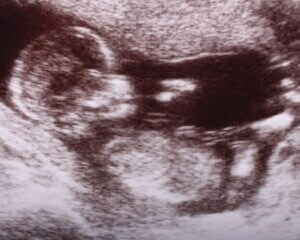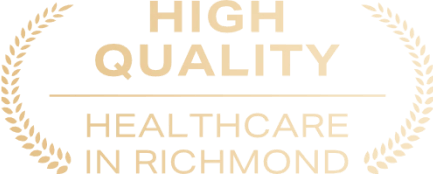One of the many dilemmas expectant parents have is understanding which pregnancy tests they should have and what type of testing is safe during pregnancy.
Several tests are available, and knowing which ones come with minimal risk can really set parents’ minds at rest.
So, we’ll outline two of the best tests you can have during your pregnancy which are safe.
The good news is that you don’t have to wait for the NHS to offer you a test. You can always book one privately.
What Are Prenatal Tests?
Firstly, let’s discuss what prenatal tests are. These are tests done during pregnancy to check on the health of your baby and your health. Doctors and health professionals use prenatal tests to detect birth defects, chromosomal abnormalities, and/or the risk of early labour.
Some tests are simply screening tests that can only reveal the possibility of a problem. Other prenatal tests are more diagnostic and can accurately determine if a fetus has a specific problem. If a screening test detects a cause for concern, it will often be followed by a diagnostic test to get a clearer picture.
Ultrasound scans tend to be diagnostic, whilst NIPT testing screens the likelihood of chromosomal abnormalities with high accuracy by testing the expectant mother’s blood – thereby removing any risk to the baby.
Ultrasounds
Ultrasounds are incredibly safe for staying informed about your baby’s health and growth.
Pregnancy ultrasounds are safe and painless tests that use sound waves to make images that show the baby’s shape and position.
Most women will be offered 2-3 NHS scans for a normal low-risk pregnancy. Generally, at a first and second-trimester scan at 12 and 20 weeks. The number of ultrasounds and timing may differ for women with certain health conditions like asthma and obesity.
The three most popular scans we have at Bodyvie are:
- Early Pregnancy Scans can help determine your due date, check the viability of the pregnancy and confirm whether it is a single or multiple pregnancy
- Reassurance Scans are administered anytime from 6-42 weeks of pregnancy; this scan checks fetal-wellbeing to provide parents with peace of mind
- 4D Pregnancy Scans give you a good look at your baby in 4D, seeing their expressions and face in real-time, rather than a black and white 2D image
Other ultrasound scans include:
- Early Reassurance Scans
- Nuchal Translucency (NT) Scan
- Dating Scan
- Gender Scans
- 4D Pregnancy Scans
- Anomaly Scan
- Pregnancy Growth Scan
Ultrasounds can be done safely throughout your pregnancy for an early pregnancy assessment or growth scans later, even if you’d just like to see your little one once more.
NIPT
NIPT, or Non-invasive prenatal testing, determines the risk that the fetus will be born with specific genetic abnormalities.
NIPT is a popular choice for testing because it is virtually risk-free for the foetus and mother. A NIPT requires only a blood test from the pregnant woman; therefore, it does not pose any risk to the fetus.
NIPT is considered a screening test because it estimates the likelihood of whether the fetus has a genetic condition. NIPT analyses both fetal and maternal cfDNA. The test may detect a genetic condition in the mother.
If you are high-risk, you may be referred for amniocentesis or chorionic villus biopsy (CVS) to assess your baby’s chromosome pattern. Both amniocentesis and CVS are associated with minimal risk to the foetus; however, NIPT testing analyses the mother’s blood and therefore has no impact on the foetus. It also has the best detection rate of all screening tests; it estimates the risk of your baby having a common chromosome condition called a trisomy. The detection rate is more than 99% accurate.
How it works is that the test analyses small fragments of DNA circulating in a pregnant mother’s blood. During pregnancy, the mother’s blood contains a mix of cfDNA from her cells and cells from the placenta. The DNA in placental cells is usually identical to the DNA of the fetus. Analysing cfDNA from the placenta allows early detection of specific genetic abnormalities without harming the fetus.
Your trained phlebotomist will take a sample of maternal venous blood from your arm, and the NIPT is combined with an ultrasound scan to confirm pregnancy and check fetal well-being. NIPT detects cell-free fetal DNA (cfDNA) in the mother’s bloodstream using next-generation sequencing technology coupled with advanced bioinformatics analysis.
An added benefit is that NIPT testing can provide an optional analysis of the X and Y sex chromosomes, thus providing accurate gender confirmation. The accuracy of gender determination using NIPT is greater than 98%, but we always advise having the gender checked at your 20-week ultrasound anatomy scan.
NIPT is most often used to look for
- Down’s syndrome
- Edwards’ syndrome
- Patau’s syndrome
At Bodyvie, we work with various accredited laboratories to process our NIPT samples, all of which have excellent detection rates.
The NIPT tests vary and offer different specificities, sensitivities and screening panels. The cost, turnaround time, and redraw rate will vary according to the NIPT test that best suits you.
We offer the following NIPT tests:
- Harmony™ by Ariosa (processed in the UK with The Doctors Laboratory)
- Panorama™ by Natera (processed in the USA)
- IONA® by Yourgene Health (processed in the UK)
- NIFTY by BGI (processed in the UK)
It is a far safer testing option than amniocentesis and a much better first step in the testing process.
Conclusion
There are many ways to check a fetus’s health and growth. NIPT testing and Ultrasounds are two of the safest and least invasive options.
While the NHS does offer a few ultrasounds throughout your pregnancy, they only provide NIPT should your pregnancy be high-risk. However, many expectant parents prefer to book a private NIPT to ease their minds and obtain this test early. NIPT can be offered from 9 weeks!
If you’re looking for a safe and easy option to keep up-to-date with your baby’s health and well-being, contact us today!
















I recently got my reassurance scan done at Bodyvie and it definitely was what I needed to ensure that everything was okay with our little baby. I definitely recommend these tests and scans, pregnancy can cause so much anxiety, especially as a first-time parent and it is also very important to stay ahead of any problem that might arise by constantly getting yourself checked.
I was so worried about the health of my baby during my pregnancy, so I decided to book a private NIPT. It was great to be able to get an early scan to check on the health of my baby and it put my mind at ease.
As an expectant mother, I can’t express enough how valuable prenatal tests like ultrasounds and NIPT have been in providing reassurance and information about my baby’s health. They have truly eased my worries and allowed me to enjoy my pregnancy with peace of mind.
When I was pregnant for the first time, I felt anxious. I went to Bodyvie to have a NIPT scan done, and it brought me great peace of mind to know that everything was going well with my baby. I would highly recommend getting these tests and scans, as staying on top of your health is so important during pregnancy.
I had no idea there were so many types of ultrasounds available during pregnancy! The 4D pregnancy scans sound fascinating, being able to see the baby’s expressions and face in real-time. It’s great to know that ultrasounds are safe and can be done throughout pregnancy for various assessments.